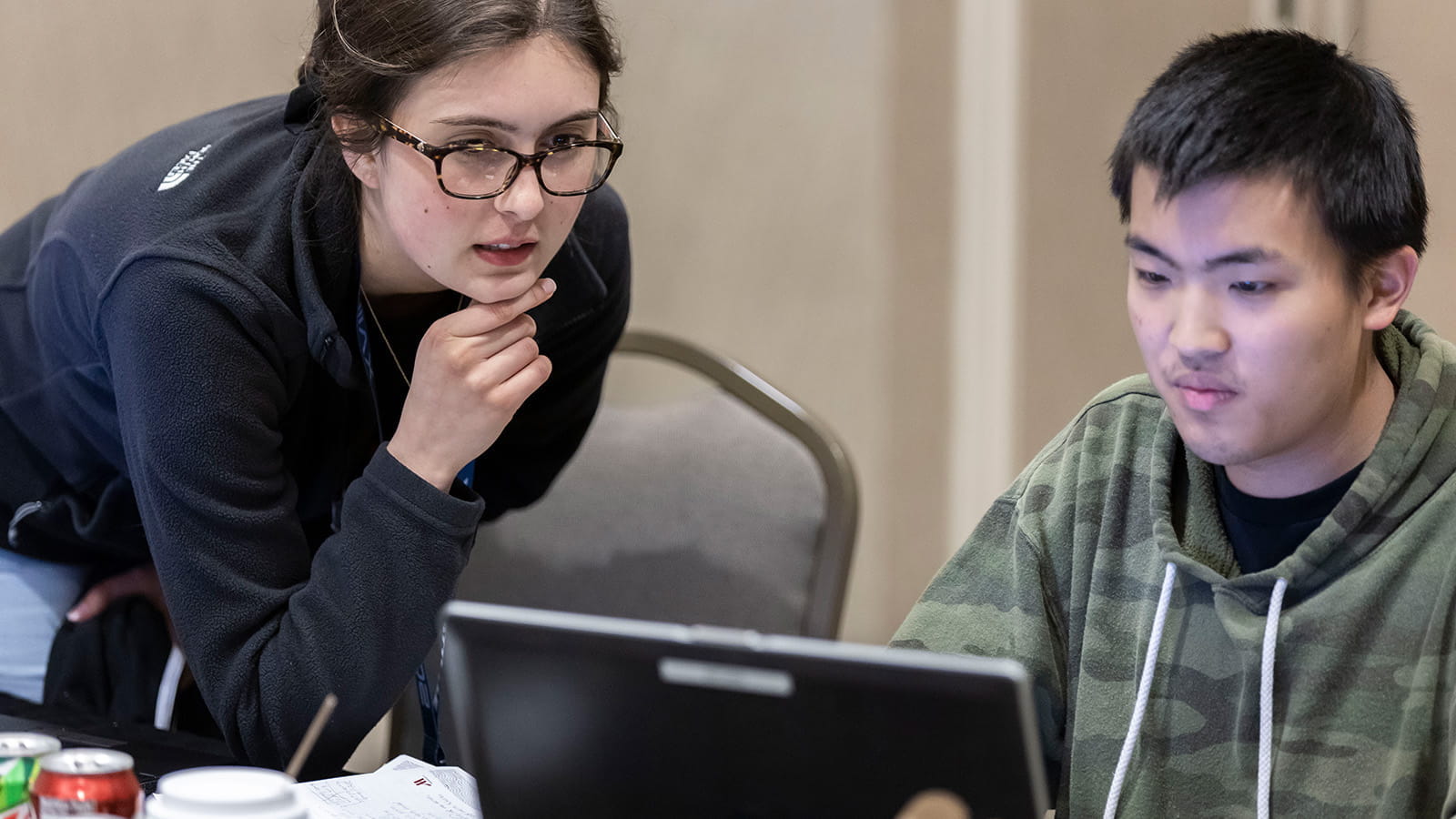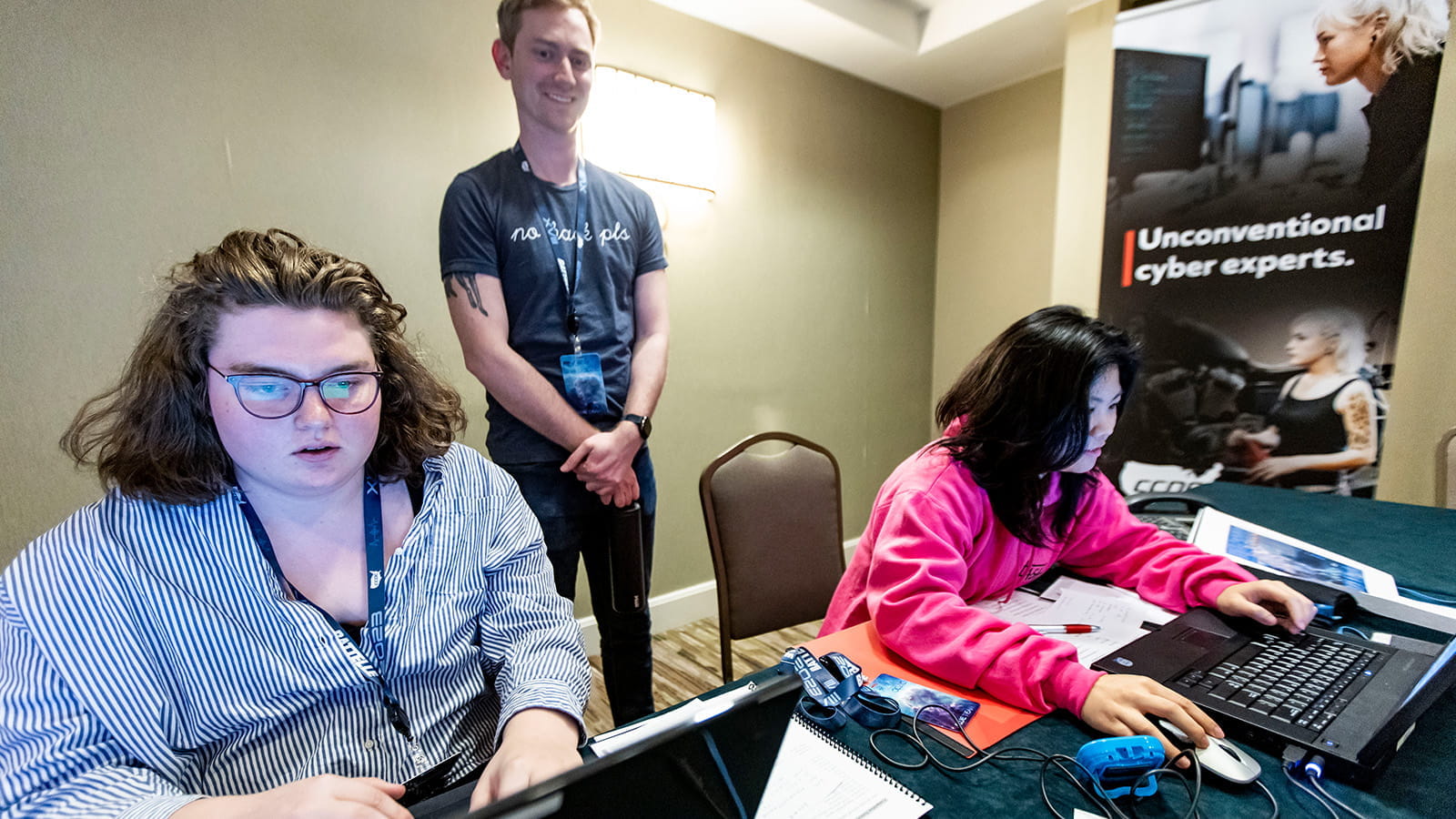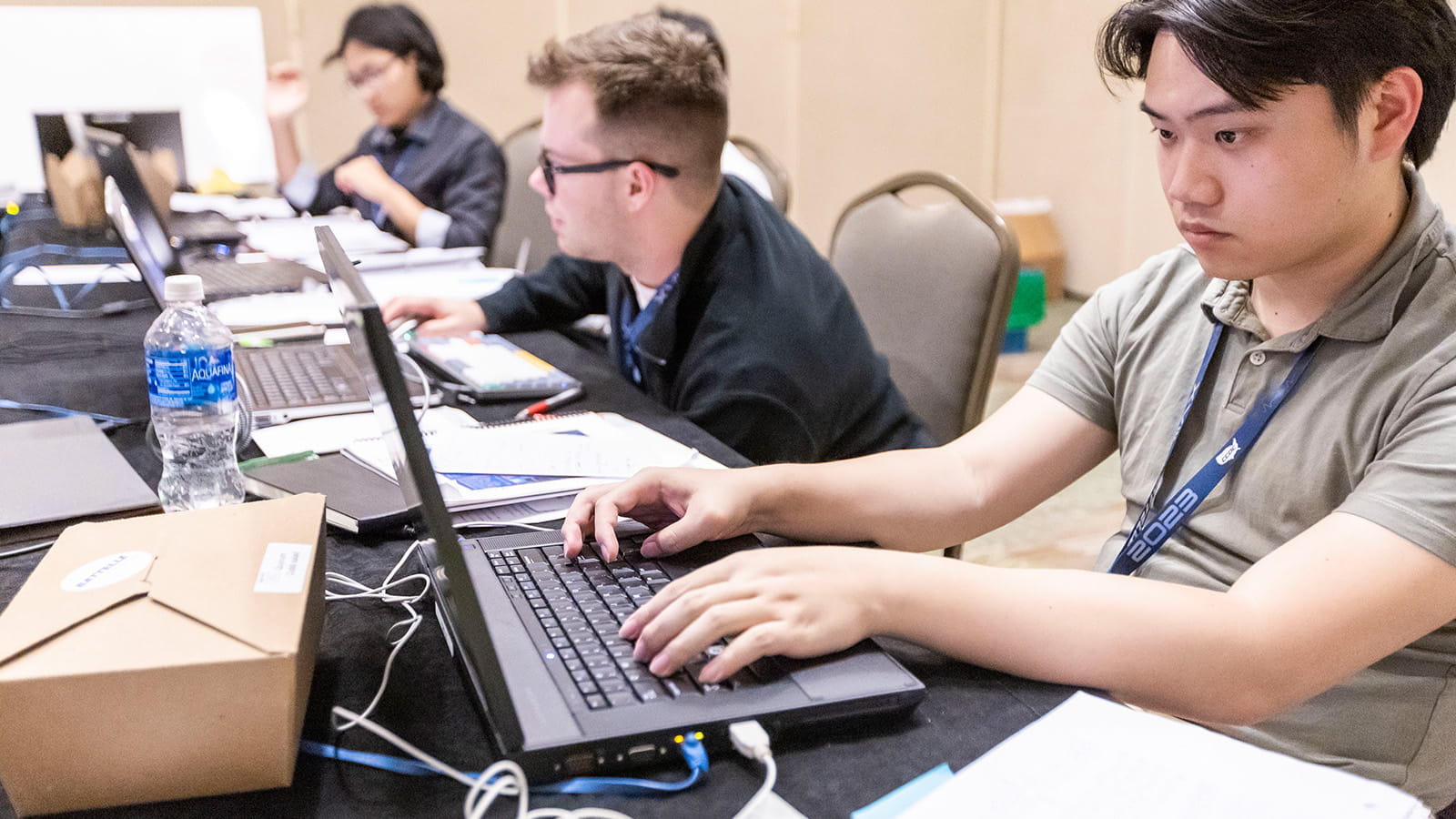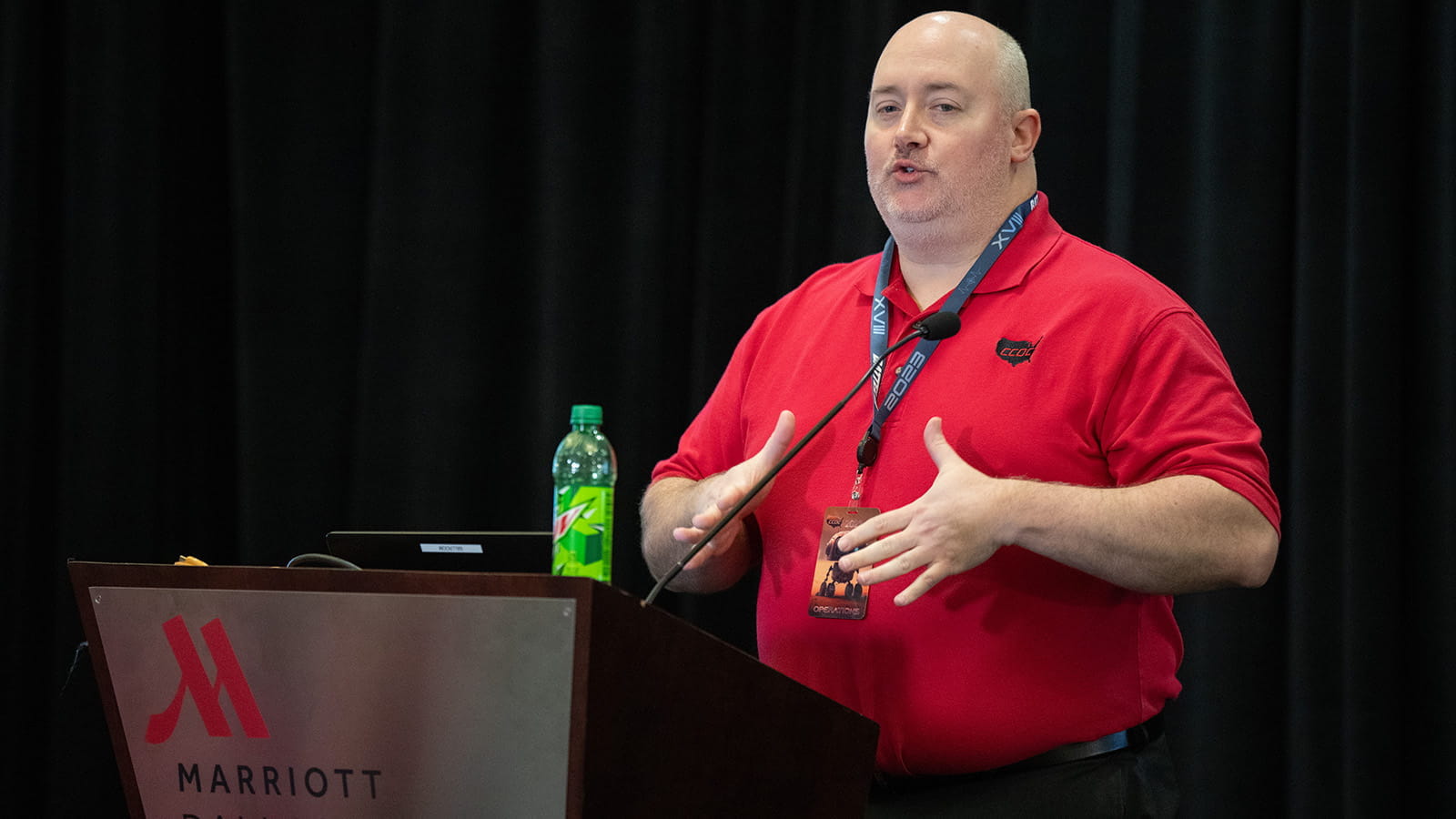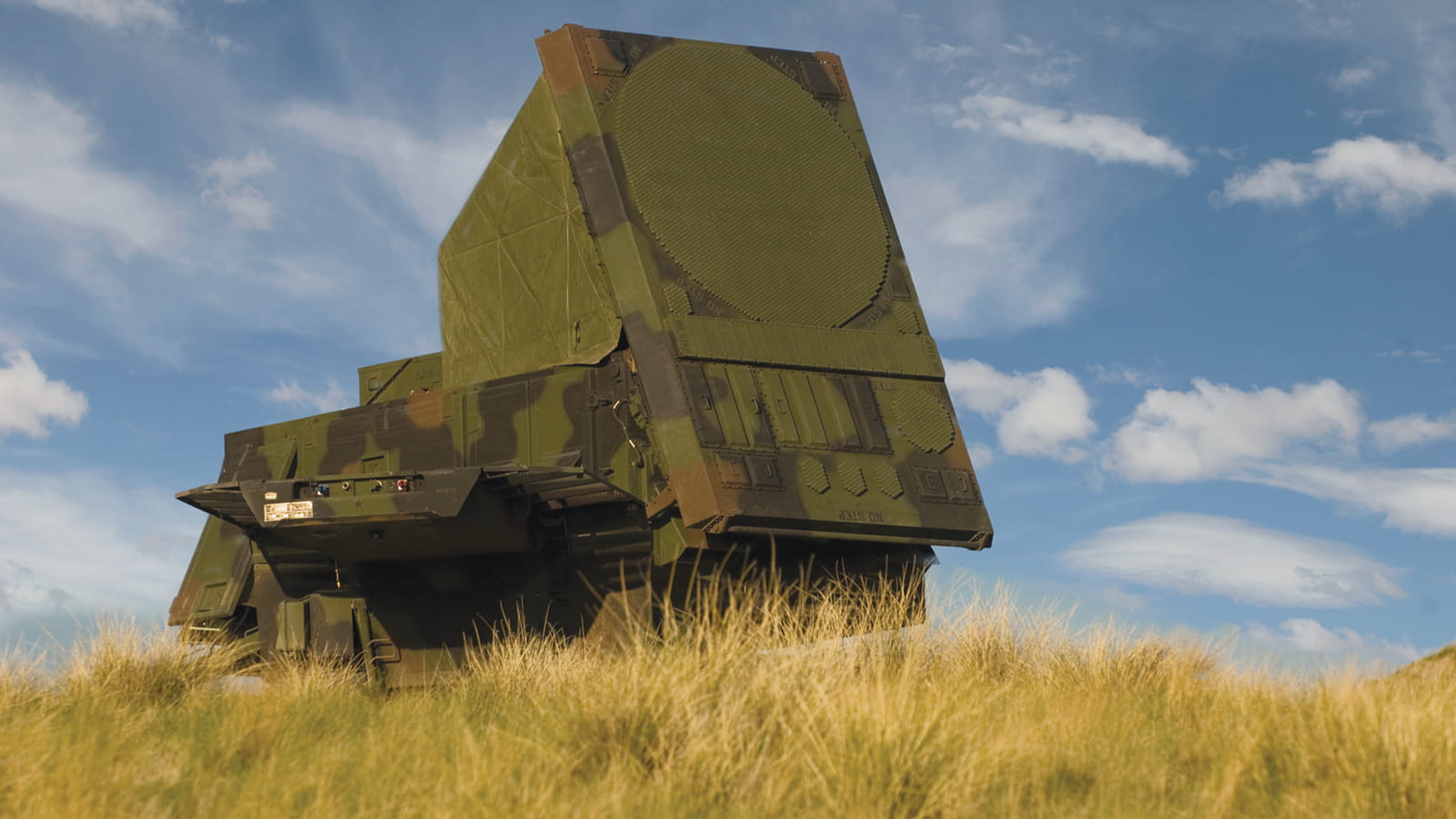Cardinal code its way to the crown
Stanford University claims top honors in national collegiate championship
Why it matters:
Cyberattacks are costly. The FBI reported that cybercrimes cost victims more than $10.3 billion in 2022, making the need for more cyber professionals crucial to defense infrastructures.
NCCDC, sponsored by Raytheon Technologies, is the nation’s largest competition of its kind, giving college students across the country a chance to test their cybersecurity skills. The competition offers realistic, hands-on experience to prepare them for careers in the field.
Background:
The 2023 competition was the 18th in the organization's history. More than 1,500 competitors from 178 collegiate teams across the U.S. competed regionally for a chance to advance to the nationals. The 10 teams chosen for the final competition had to protect the network infrastructure of a fictitious medical facility in Colorado that recently acquired two clinics.
Historically Black colleges and universities, Hispanic-serving institutions, Asian and Native American Pacific Islander-serving institutions, tribal colleges and universities were eligible to apply for a $1,000 scholarship to cover regional registration fees, travel costs, and resources or materials needed for competition training. Five universities received this year’s scholarship.
More than three dozen Raytheon Intelligence & Space employees volunteered to work with competitors and organizers – securing networks, mentoring students, scoring the contest and hacking systems. They worked on different teams:
- White team: Operated as team judges, checked the rules and scored the events.
- Orange team: Worked as customers and employees needing support with problems like passwords, orders, tickets and VPN access.
- Red team: Infiltrated networks, created secret "back-door" entry points and fake user accounts, turned off services and stole data.
What they're saying:
Student experiences
Volunteer experiences
Bottom line:
By presenting NCCDC, Raytheon Technologies is demonstrating its commitment to nurturing, inspiring and hiring the next generation of cyber defenders.
What’s next:
Stanford’s cyber team will hit the road for a victory tour in Washington D.C, where they will meet with top-level cybersecurity professionals and policymakers from government, military and industry.
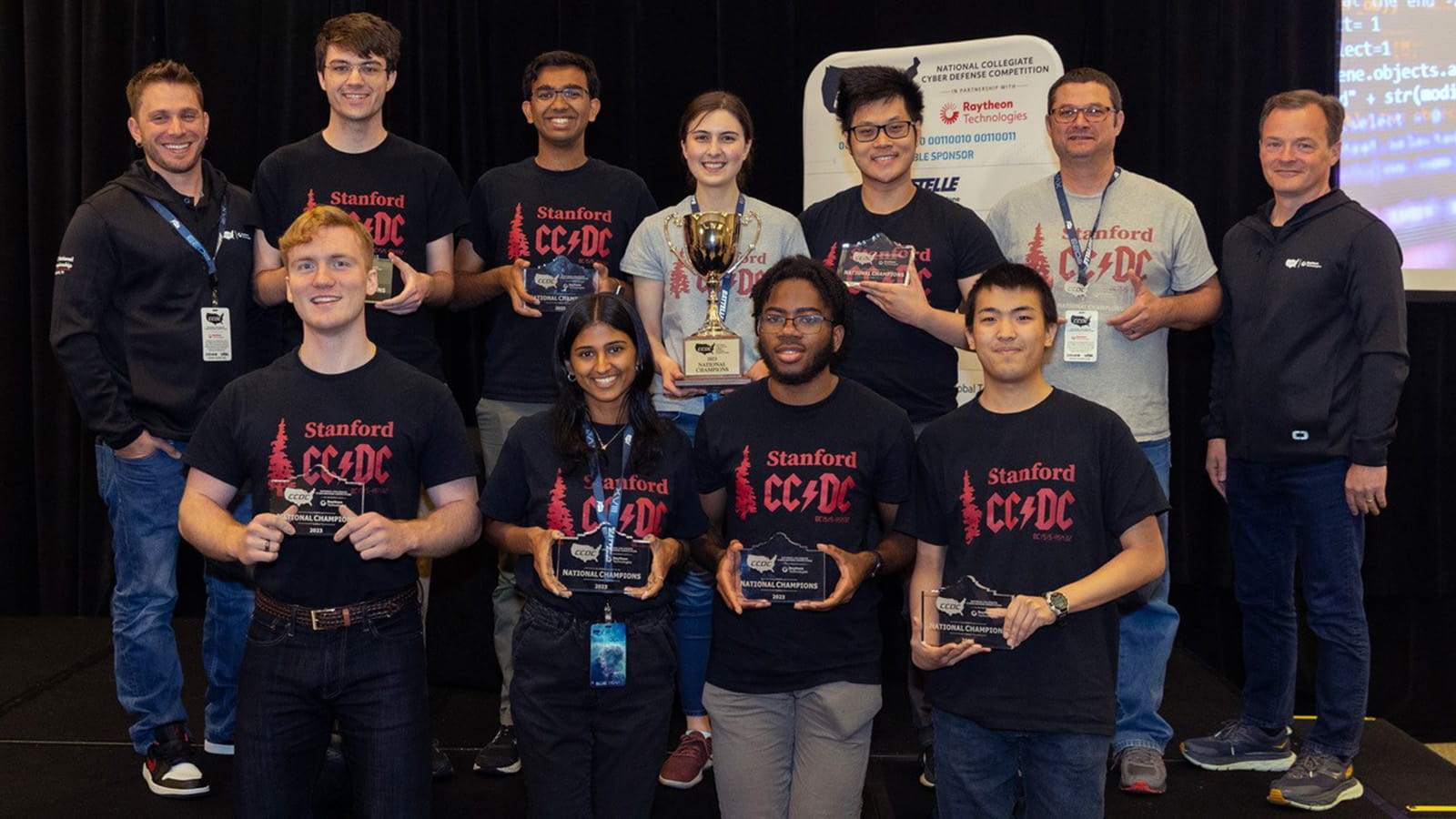
Stanford University poses with the 2023 Alamo Cup, the NCCDC championship trophy, after winning the competition for the first time. The university had finished in the top three in previous years.
A cohort of 80 students divided into 10 teams participated in the 2023 National Collegiate Cyber Defense Competition.
Top 10 schools by region were:
- At-Large: Dakota State University
- Mid-Atlantic: University of Virginia
- Mid-West: DePaul University (Second Runner-up)
- Northeast: Northeastern University
- Pacific Rim: Oregon State University
- Rocky Mountain: Brigham Young University
- Southeast: University of North Florida
- Southwest: University of Texas Austin
- Western: Stanford University
- Wildcard: California State Polytechnic University, Pomona (Runner-up)

